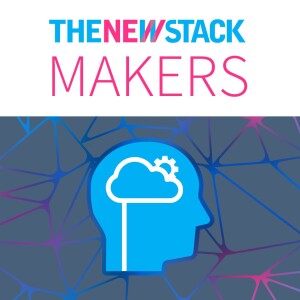
In this episode of The New Stack Makers podcast, the focus is on the challenges of handling unstructured data in today's data-rich world and the potential solutions offered by vector databases and vector searches. The use of relational databases is limited when dealing with text, images, and voice data, which makes it difficult to uncover meaningful relationships between different data points.
Vector databases, which facilitate vector searches, have become increasingly popular for addressing this issue. They allow organizations to store, search, and index data that would be challenging to manage in traditional databases. Semantic search and Large Language Models have sparked interest in vector databases, providing developers with new possibilities.
Beyond standard applications like information search and recommendation bots, vector searches have also proven useful in combating copyright infringement. Social media companies like Facebook have pioneered this approach by using vectors to check copyrighted media uploads.
Vector databases excel at finding similarities between data objects, as they operate in vector spaces and perform approximate nearest neighbor searches, sacrificing a bit of accuracy for increased efficiency. However, developers need to understand their specific use cases and the scale of their applications to make the most of vector databases and search.
Frank Liu, the director of operations at Zilliz, advised listeners to educate themselves about vector databases, vector search, and machine learning to leverage the existing ecosystem of tools effectively. One notable indexing strategy for vectors is Hierarchical Navigable Small Worlds (HNSW), a graph-based algorithm created by Yury Malkov, a distinguished software engineer at VerSE Innovation who also joined us along with Nils Reimers of Cohere.
It's crucial to view vector databases and search as additional tools in the developer's toolbox rather than replacements for existing database management systems or document databases. The ultimate goal is to build applications focused on user satisfaction, not just optimizing clicks. To delve deeper into the topic and explore the gaps in current tooling, check out the full episode.
Learn more about vector databases at thenewstack.io
Vector Databases: What Devs Need to Know about How They Work
Vector Primer: Understand the Lingua Franca of Generative AI
How Large Language Models Fuel the Rise of Vector Databases
More Episodes
 2024-11-07
2024-11-07
 2024-10-31
2024-10-31
 2024-10-24
2024-10-24
 2024-09-19
2024-09-19
 2024-08-22
2024-08-22
 2024-08-08
2024-08-08
 2024-07-25
2024-07-25
 2024-07-02
2024-07-02
Create your
podcast in
minutes
- Full-featured podcast site
- Unlimited storage and bandwidth
- Comprehensive podcast stats
- Distribute to Apple Podcasts, Spotify, and more
- Make money with your podcast
It is Free
- Privacy Policy
- Cookie Policy
- Terms of Use
- Consent Preferences
- Copyright © 2015-2024 Podbean.com





